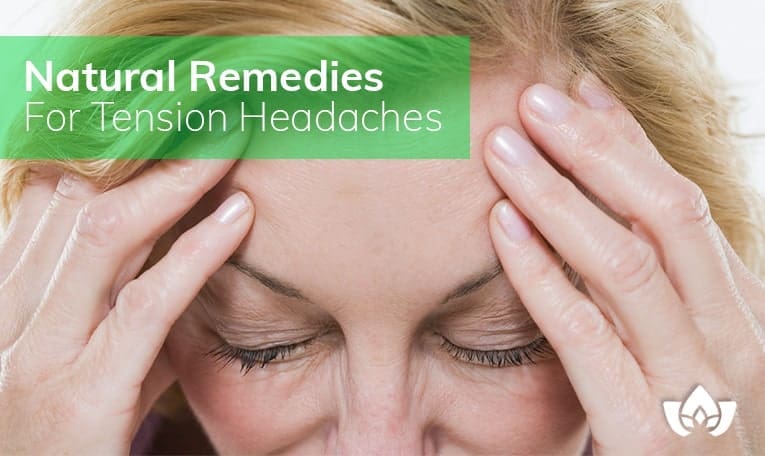
Experienced by most people at some point in their life, headaches are one of the most common medical complaints.
In fact, according to data from the World Health Organization, nearly half the adult population have reported to have a headache at least once in the past year.
In spite of their commonality, though, headaches are often under-reported and under-treated.
Tension headaches are the most common primary headache disorder, with episodic tension headaches being reported in more than 70% of some populations.
If you have been diagnosed with tension headaches, or if you believe you may be experiencing tension headaches, you may be relieved to know that at the Mindful Healing Clinic, there are natural solutions for tension headaches available.
But what exactly are tension headaches, and what natural treatment options are available?
Keep reading to find out.
What Is A Tension Headache?
Tension headaches are described as mild to moderate pain in the head that feels like a tight band.
They come and go over time.
Symptoms of tension headaches include:
• Pain in the head that is dull and aching which can spread to the neck
• Tenderness in the neck, scalp, and shoulder muscles
• Sensation of tightness or pressure across the forehead, or in the back or sides of the head
Tension headaches can be episodic or chronic.
Episodic tension headaches, which have been reported by more than 70% of people in some populations, occur on fewer than 15 days per month for at least three months.
They usually last for a few hours but can persist for days.
Chronic tension headaches, which are estimated to affect 1-3% of adults, occur on more than 15 days per month for at least three months.
They can be more disabling than episodic headaches.
What Causes Tension Headaches?
`Headache disorders, including tension headaches, are a worldwide problem, affecting people of all ages, races, and genders.
Tension headaches are categorized as a primary headache, which is not a symptom of an underlying disease.
Primary headaches are caused by overactivity in the brain, muscles in the head, or problems with pain-sensitive structures in the head.
Lifestyle factors can trigger primary headaches such as tension headaches.
These factors include, but are not limited to:
• Stress
• Diet
• Changes to or a lack of sleep
• Alcohol consumption
• Poor posture
• Environmental causes, such as second-hand smoke
• Eye or back strain
In addition, headaches can often be an indicator of a deficiency in the body, such as dehydration or a vitamin deficiency.
Other Types Of Headaches
There are 150 different types of headaches.
Other than tension headaches, the three most common types are sinus headaches, cluster headaches, and migraines.
When a migraine and tension headache are experienced simultaneously, it is known as a transformed or mixed headache.
Sinus headaches are caused by inflammation of the sinuses.
They can cause pain in the forehead, bridge of the nose, and cheeks, and are often concurrent with fever, pressure in the ears, and congestion or a runny nose.
Cluster headaches are severe but uncommon, affecting fewer than 1 in 1000 adults.
They occur in groups for a couple of weeks to a couple of months; they can go away for months or years, and then return.
They are characterized by an intense pain that can feel like burning or piercing behind the eyes.
Other symptoms can include runny nose, tearing or redness of the eye, and a drooping eyelid.
Migraines can last for a few hours to a few days and are caused by a mechanism deep in the brain that releases pain-producing inflammatory substances around the blood vessels and nerves in the head.
They are often recurring and can also cause nausea and sensitivity to light.
In the 2013 Global Burden of Disease Study, migraines were found to be the sixth highest cause worldwide of years lost due to disability.
Headaches can also occur as a symptom of a disease, such as in cases of:
• Ear Infection
• Concussion
• Glaucoma
• Stroke
• Meningitis
• Panic Attacks
Natural Remedies For Tension Headaches
Several natural remedies exist which can help alleviate the pain associated with tension headaches.

1. Stretch And Move Your Body
Although movement may feel counterintuitive during a headache, stretching exercises such as yoga can improve respiration and vitality, while relieving built-up tension.
Frequent movement and stretches of the neck, especially when you’re in a sitting position for an extended period of time, relieves tension and can help prevent headaches.
A 2012 study from the Department of Physical Medicine and Rehabilitation found that a 12-month stretching program resulted in a 69% reduction of headache frequency and symptom severity.
Results were improved even further when paired with strength training and muscular endurance exercises.
Consult with your doctor before beginning any exercise routine.
2. Acupuncture
Acupuncture seeks to balance the body’s energy by stimulating specific points on the body.
Acupuncture can be used as a treatment for a variety of reported chronic pain, including chronic headaches.
In two recent trials, acupuncture was found to have significant and relevant short-term benefits for number of headache days and pain intensity.
It is considered a valuable tool in patients with frequent tension headaches.
3. Use A Compress
Compresses can provide pain relief for tension headaches.
Either hot or cold can work, depending on your preference and effectiveness.
People with tension headaches often prefer a warm compress.
4. Supplement With Magnesium
Patients who experience severe headaches often have low levels of magnesium, and several studies suggest supplementing with magnesium may help reduce the frequency of migraines for patients with low magnesium levels.
Magnesium is available in oral and intravenous supplements and can also be found in dietary sources such as beans, seeds, nuts, whole grains, and leafy greens.
5. Use Lavender & Peppermint Essential Oils
Peppermint oil, in combination with ethanol, has been shown to reduce headache sensitivity by cooling the skin and soothing muscle contractions.
Lavender oil is used as a sedative and mood stabilizer.
To use these oils, place a few drops on your hands and rub into the temples, forehead, and neck.
Contact The Mindful Healing Clinic
Naturopathic treatment is available for tension headaches, depending on the specifications of your individual disorder.
If you have been diagnosed with tension headaches or suspect that you have been experiencing them, contact me, Dr. Maria Cavallazzi, at the Mindful Healing Clinic.
During your initial appointment, you will sit down with me where we can talk about your tension headaches and any other health concerns you may have.
From there, we’ll create a treatment plan based on your unique health needs.
Contact the Mindful Healing Clinic to book your FREE 15-minute introductory session today.
Until next time,
Dr. Maria Cavallazzi, N.D
Mindful Healing Naturopathic Clinic
Mississauga, ON L5M 1L7
(905) 819-8200
► https://g.page/MindfulClinicNaturopathic
Dr. Maria Cavallazzi is a medical doctor from Colombia where she practiced as a family physician for 8 years until she moved to Canada 16 years ago and became a naturopathic doctor in Mississauga.


